This is part 2 of 5 in a series of posts of opportunities available to you and building a better world for yourself by surviving (or thriving) during a recession and a pandemic.
Talk with your bank sooner rather than later
Governments have cut deals with banks to help share some of the financial risks of the pandemic and recession. In NZ, banks can offer a six-month holiday on loan payments (both interest and principal). Just be aware that interest will tick away while not making any payments. My advice? Keep this as a plan Z – absolutely last resort if need be.
The NZ Government has also done a deal with banks offering loan money to small and medium-sized businesses. Businesses with turnover of between $250,000 and $80 million will be eligible for loans of up to $500,000 for a term of up to three years. Any loans offered will be at the discretion of the banks – i.e. you still need a strong commercial case why you should be given a loan and how the bank will be repaid.
Governments have also dropped cash rates, which leads to reducing loan interest rates. Floating loans should be showing the lower interest rates already. Fixed loans won’t show any changes. So if you have fixed loans, consider options to reduce your monthly loan payments now:
- refinance any existing mortgages to interest only for a year or two
- refinance loans over longer periods to reduce overall payments
- consider capitalising any break fees refinancing an older higher interest rate loan to a lower interest rate loan (it may mean more interest in the long run, but reducing payments now may mean the difference between getting through this and not getting through this with your house).
Ring your bank and see what options they have for you. Every bank is different. Banks want to be seen helping their customers so they will help you with your options as long as you’re willing to honour your side of this. They are lending money which you must pay back. And I know talking with my bank manager, they will not be lending money to businesses that were ‘bad’ businesses before the recession/pandemic just because they’re lending money to help businesses get through this.
The goal right now is to both reduce monthly payments so you need less to live on while dealing with the shock of this change; and build a buffer to help give you time to change as further changes are imposed on us. You don’t want to be so ‘tight’ on money that another shock (for example, let’s assume it’s not a month lockdown, but three … or longer) is the final nail in the coffin for your business.
Planning opportunity: reduce your breakeven point
Talk with suppliers and customers
See who you can help and who can help you. It’s a catch 22 if you want customers to pay you (and reduce the cash they have) or delay paying suppliers (to reduce the cash they should have). Is it you or them? It doesn’t have to be an ‘or’ decision. Talk with them to make arrangements that work best for both of you (particularly key suppliers or customers) and stay in touch as time passes to make sure everything is still okay. To make it through this, you may have to share some ‘downside’ which is okay as long as it’s fair to both you and your customer/supplier.
Planning opportunity: secure your most important suppliers/customers; become important to someone else so they’re willing to help you
Tax planning
Talk with your accountant now and consider deferring your coming tax payments:
Payment arrangements with IRD
You can talk with IRD about a repayment plan for your 7 April 2020 income tax payment for 2019 terminal tax. Paying IRD smaller payments over time instead of making one full payment will give you more cash in your bank for other things you might need now or in the future. And they’re being fairly lenient with those who can’t pay what they need to on time. IRD will write-off any penalties and interest for businesses unable to pay taxes on time due to the impact of Covid19.
Defer final 2020 provisional tax payment
For the coming 7 May 2020 payment of 2020 provisional tax – consider deferring that for just over a year to mid-June 2021 at the latest using a tax intermediary like Tax Management NZ Ltd. Their cost is approximately 6% p.a. Having that cash in your bank might be the difference between keeping your business going, keeping key staff, and or putting food on your table. Just remember this payment is more than likely payable because for the most part your 2020 results are likely to be similar to 2019 – the recession/virus hit mid-late March 2020 so will only make a small impact if any to 2020 results for most small businesses.
Estimate 2021 provisional tax
Consider estimating your 2021 provisional tax down based on your business results from 1 April 2020. Or you can consider using a tax intermediary for your payment due on 28 August 2020 to defer that until June 2022 at the latest.
Loss carry-backs
The IRD is expected to introduce a temporary loss carry-back scheme via a bill being introduced in Government in the week beginning 27 April. The way this will work is that businesses expecting to make a loss in either the 2019/20 year or the 2020/21 year will be able to estimate the loss and use it to offset profits in the past year. In other words, you could carry the loss back one year.
The loss carry-back rules should apply to all businesses whether trading individually or through a company. Taxpayers who qualify for this should be able to estimate their March 2020 provisional tax to NIL based on estimated March 2021 losses. Depending on the losses, this could mean refunds of provisional tax already paid. Taxpayers would not have to wait until 2021 accounts are done to access the losses. If you think there’s going to be a loss, include a reasonable estimate of that in your 2020 calculations. Use of money interest will apply if you get the estimate wrong … as is the case when you estimate provisional tax normally.
Covid-19 is no excuse to avoid paying taxes
And finally, taxes will still need to be paid. While there is some leniency around penalties and interest, IRD still expects taxes to be paid. Covid-19 is not an excuse by taxpayers to not pay their taxes.
Planning opportunity:– defer tax payments to build your buffer and buy time to settle into your new ‘normal’
